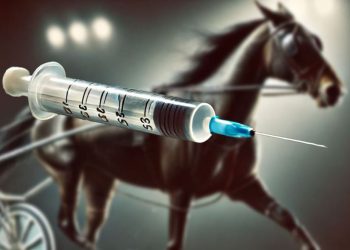MANALAPAN, NJ – March 6, 2020 – The North American Harness Horse Alliance (NAHHA) has taken action to help support harness racing in Michigan. T,he NAHHA sent a letter to the House of Representatives requesting support for Senate Bill 661.
Letter in Support of Michigan Racing Horsemen March 4, 2020
Dear House Representative,
We are writing to request your support for Senate Bill 661. The North American Harness Horse Alliance
(NAHHA) has among its members, Associatons representing horsepeople in the surrounding states of Ohio,
New Jersey, New York and the Province of Ontario. All of these racing jurisdicions receive the benefit of strong
government support for their horsemen’s small businesses and can each testify to the importance of this
support in maintaining, preserving and enhancing the agricultural based businesses suppor<ng the equine
industries.
A majority of North American racing jurisdic<ons that have legalized alterna<ve gaming op<ons acknowledge
the cannibalization of the existing horse racing revenue stream after a gaming and entertainment sector
expansion. Those jurisdictions share a por<on of the expanded gaming proceeds with the racing industry to
offset this cannibalization.
The industry relies in-part on pari-mutuel wagering commissions to fund the operations of the racetracks and to provide the funding for prize money for the racing participants.
Other states that have not approved alternative gaming have had to adjust to the success of surrounding states
in order to maintain and support the traditional breeding and racing industries. Some of those states have
allowed historical racing wagering as another product available to the racetrack locations to generate
additional revenue.
Kentucky is a shining example of how the approval of historical racing has enhanced the breeding and racing industries in that state. The decision by the Kentucky legislature afforded the racing industry the tools to remain competitive with other surrounding states, without codifying new legislation, but expanding the pari-mutuel regulations and offerings at the racetracks. Virginia is another state that has recently approved historical racing and the projections are that this decision will result in over 4,000 new jobs and approximately $450 million in new investment. Other states that have approved historical horse racing include Arkansas, Wyoming, and Oregon.
The state of Michigan has historically been one of the leading states in the nation for horse breeding and
racing. Unfortunately, with the expansion of casino gaming, and the fact that racetracks are not allowed to
expand their wagering options, the breeding and racing industries have suffered significant contraction.
Thousands of small businesses have suffered, agricultural jobs have been lost, racetracks have closed and the
state’s economy has seen a dramatic decrease in the racing industry’s economic impact. The horse breeding
and racing industries are by far the most labor-intensive forms of agriculture. Very little that we do can be
mechanized and performance horses require intense management and care.
Other equine industries benefit from a strong racing industry in a trickle-down effect. Racing requires highly
skilled farriers, veterinarians, vet technicians and other suppor<ng trades. A successful breeding and racing
industry will attract those individuals to either come to, or stay in state. Michigan is home to one of the finest
veterinary education programs and often those graduates relocate to other states to pursue their chosen
vocation. We believe that Michigan can retain those individuals and that they will make an important
contribution to the state.
Horse breeding and racing is also an important contributor to our individual states and province, and our
Governments have shown their support. Our Governments have codified a mutually beneficial program that
benefits the state and provides the opportunity for us to grow this important agricultural business.
While passage of this Bill will provide significant employment opportunities at the racetrack, the indirect industry
benefits are felt far beyond the track. Farmers that supply the feed, hay, straw, shavings, vitamins and
supplements, businesses that offer agricultural equipment, truck and trailer sales and maintenance, training
facility workers, veterinarians, massage therapists, farriers, tack shops, tack suppliers, manufacturers of equine
equipment, and many others will see their quality of life improve with the expansion of pari-mutuel wagering
at the tracks.
The NAHHA views this Bill as an opportunity for the horse people in Michigan to begin the process of repairing
the damage that was inflicted upon the industry with the major expansion of tribal casino and casino wagering
in the state. This Bill, if passed, will allow residents of Michigan to remain in their home state to conduct
business rather than travelling hours to seek opportunities to race their horses.
As racing regains its stature in the State, we believe that the positive effects will be felt throughout the state, and most importantly in those small rural areas of the state that are predominantly agricultural based.
We understand that the racing industry faces significant oppossion to this Bill from the casino lobby, as it has
for the last approximately 15 years. This is an opportunity to give this important industry a leg up, stop the
cannibalization, and to begin to level the playing field.
On behalf of the members of the NAHHA we appreciate your consideration of this important Bill and ask you
for your support for the Michigan equine racing families that are anxiously hoping for passage of this critical
bill.
From the North American Harness Horse Alliance

 USA
USA Canada
Canada Australia
Australia New Zealand
New Zealand Europe
Europe UK / IRE
UK / IRE


